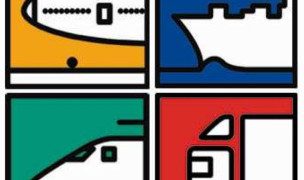 5 Terms
5 TermsHome > Terms > English (EN) > museums
museums
Although art museums and children’s museums constitute well-known genres of investigation and display, Americans have created many other centers that attract local visitors and tourists. Among the most important categories are historical museums and houses, science and natural history museums, ethnic museums, “professional” or thematic museums and more offbeat idiosyncrasies celebrated in private and commercial establishments.
Historical museums, like historical preservation, cherish and explain the past. Many historic homes refer to past elites as owners of history—Manhattan’s Tenement Museum, chronicling the struggles of European immigrants, is a rare exception. Nonetheless, social consciousness since the Civil Rights era has forced more explanation and discussion of slaves and servants who made life in the “big house” possible. Museums of cities, counties and states, as well as the Smithsonian as a national museum, have also sponsored diverse exhibits on the racial, gender, class and ethnic intersections of American history.
Historical museums may also include houses far out in the country—typical of many Southern plantation homes—or even entire rural villages which recreate snapshots of the past as open-air and working museums. Shaker settlements in Hancock, Massachusetts, and Pleasant Hill, Kentucky, for example, represent modern attempts to preserve past utopian communities, while colonial Williamsburg, Virginia, was restored with funding from John D. Rockefeller, Jr.
Natural history museums like Chicago, IL’s Field Museum or New York City, NY’s venerable American Museum of Natural History were popular attractions in nineteenthcentury cities. These, like the Smithsonian and university museums, have been centers for investigations of animals, plants and minerals. Some also have developed extensive collections for anthropological and archaeological investigation, especially in Native American research. The last was a point of controversy in the 1990s as American Indians demanded the return and reburial of bones and sacred artifacts.
Other science museums look forward to space, sometimes in association with planetariums or multimedia exhibits. Here, popular culture and science coincide—an exhibit on Star Wars was a major draw for the Smithsonian, while animated dinosaurs have drawn children into other science centers.
Ethnic museums may develop from collections of local ethnic societies or may represent revindications of past denials—African American historical museums, for example, have grown nationwide since the 1960s, while the Bicentennial spurred other ethnic projects. Churches, temples and seminaries may also sponsor religious/ethnic museums. These museums are as diverse as New York’s Museo del Barrio or Chinese Historical Museum, or the Swedish American museum in Philadelphia, PA. Some are highly involved in their neighborhoods, while others promote a sense of elite or historical culture. Sometimes, these museums have uneasy relations with collections built by American buyers in foreign homelands that present more orientalist visions of the “other.” These museums present connections between American citizens and larger historical stories, powerfully embodied in Washington’s Holocaust Museum.
Specialized museums also portray professions or interests—firemen, police, military museums, the elaborate Museum of Broadcasting in Manhattan or the new Rock ’n’ Roll Hall of Fame in Cleveland, OH. Naval museums, incorporating historic ships from the nineteenth century through the Second World War, have also become popular as America distances itself from the experience of war.
Museums can also shade over into more personal or idiosyncratic memorials.
Museums celebrating Liberace (Las Vegas), Elvis Presley (Memphis) or cowboy Roy Rogers turn celebrities into history; other museums celebrate, for example, dolls, plastic, pretzels and locks. While such diversity speaks to individual tastes and freedom, some are little more than roadside attractions.
Many of these museums, despite their collections, face constant struggles for survival, whether in endowment, fundraising, competition for government support or competition for members and visitors. This has led to increasing commercialization in both showbiz exhibits and museum shops that offer goods with high status value. At the same time, museums must be careful of whom they offend. As heirs and guardians of American culture, museums are also caught in its debates as they shape its future.
- Part of Speech: noun
- Synonym(s):
- Blossary:
- Industry/Domain: Culture
- Category: American culture
- Company: Routledge
- Product:
- Acronym-Abbreviation:
Other Languages:
Member comments
Terms in the News
Billy Morgan
Sports; Snowboarding
The British snowboarder Billy Morgan has landed the sport’s first ever 1800 quadruple cork. The rider, who represented Great Britain in the 2014 Winter Olympics in Sochi, was in Livigno, Italy, when he achieved the man-oeuvre. It involves flipping four times, while body also spins with five complete rotations on a sideways or downward-facing axis. The trick ...
Marzieh Afkham
Broadcasting & receiving; News
Marzieh Afkham, who is the country’s first foreign ministry spokeswoman, will head a mission in east Asia, the state news agency reported. It is not clear to which country she will be posted as her appointment has yet to be announced officially. Afkham will only be the second female ambassador Iran has had. Under the last shah’s rule, Mehrangiz Dolatshahi, a ...
Weekly Packet
Language; Online services; Slang; Internet
Weekly Packet or "Paquete Semanal" as it is known in Cuba is a term used by Cubans to describe the information that is gathered from the internet outside of Cuba and saved onto hard drives to be transported into Cuba itself. Weekly Packets are then sold to Cuban's without internet access, allowing them to obtain information just days - and sometimes hours - after it ...
Asian Infrastructure Investment Bank (AIIB)
Banking; Investment banking
The Asian Infrastructure Investment Bank (AIIB) is an international financial institution established to address the need in Asia for infrastructure development. According to the Asian Development Bank, Asia needs $800 billion each year for roads, ports, power plants or other infrastructure projects before 2020. Originally proposed by China in 2013, a signing ...
Spartan
Online services; Internet
Spartan is the codename given to the new Microsoft Windows 10 browser that will replace Microsoft Windows Internet Explorer. The new browser will be built from the ground up and disregard any code from the IE platform. It has a new rendering engine that is built to be compatible with how the web is written today. The name Spartan is named after the ...
Featured Terms
phylum placozoa
Macroscopic, flattened marine animals, composed of ventral and dorsal epithelial layers enclosing ...
phylum cnidaria
Cnidarians. Hydras, hydroids, jellyfish, sea anemones, and corals. Free-swimming or sessile, with ...
share a term with millions
Share a term with millions of users around the world and increase your online visibility.Share a ...
oak
Genus native to the Northern Hemisphere with spirally arranged leaves, catkins for flowers and ...
Everest
The last but not least mount Everest. The Earth's highest mountain, with a peak at 8,848 metres ...
aglaonema
Genus of about 20 species of usually rhizomatous, evergreen perennials from tropical forest in Asia. ...
Robojelly
Robojelly is a hydrogen-powered robot desgined in the United States that moves through the water ...
Ferdinand Porsche
Ferdinand Porsche (3 September 1875 – 30 January 1951) was an Austrian-German automotive engineer ...
Marzieh Afkham
Marzieh Afkham, who is the country’s first foreign ministry spokeswoman, will head a mission in east ...
define1
Share a term with millions of users around the world and increase your online visibility.Share a ...
Contributor
Featured blossaries
Dan Sotnikov
0
Terms
18
Blossaries
1
Followers
International Commercial
 5 Terms
5 Terms
stanley soerianto
0
Terms
107
Blossaries
6
Followers
10 Best Value Holiday Destinations 2014
 10 Terms
10 Terms
Browers Terms By Category
- Manufactured fibers(1805)
- Fabric(212)
- Sewing(201)
- Fibers & stitching(53)
Textiles(2271) Terms
- Industrial automation(1051)
Automation(1051) Terms
- Nightclub terms(32)
- Bar terms(31)
Bars & nightclubs(63) Terms
- Ceramics(605)
- Fine art(254)
- Sculpture(239)
- Modern art(176)
- Oil painting(114)
- Beadwork(40)
Arts & crafts(1468) Terms
- Hair salons(194)
- Laundry facilities(15)
- Vetinary care(12)
- Death care products(3)
- Gyms(1)
- Portrait photography(1)




